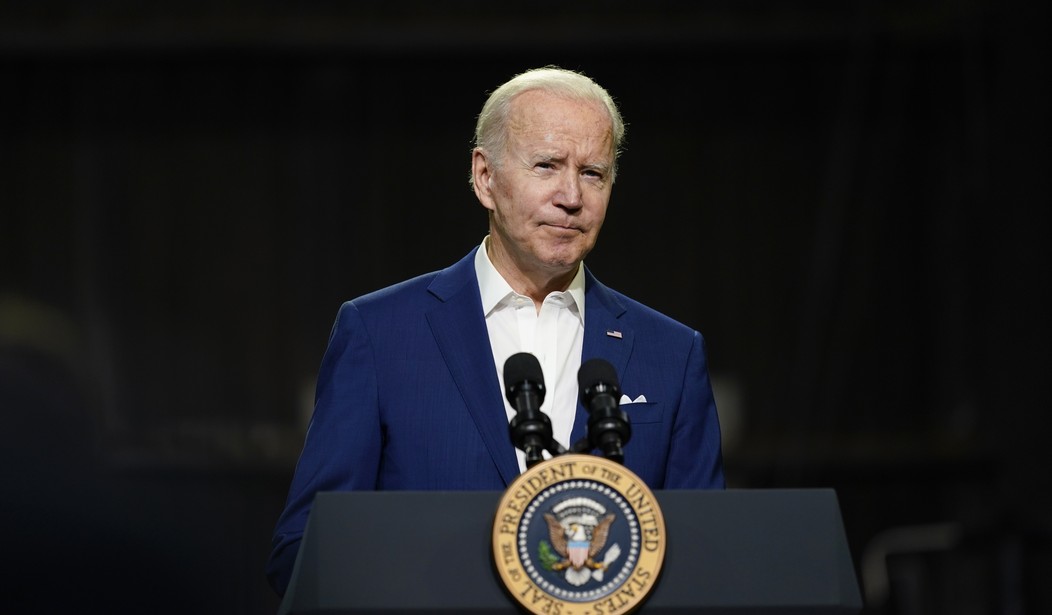"It's the economy, stupid," is the infamous mantra conceived by Democratic political consultant James Carville that underscored the main issue driving the 1992 presidential race. A few months later, Bill Clinton replaced George H.W. Bush as president; it was the voters' focus on the economy that put Clinton in the White House. While this year is a midterm, and presidential politics are not in play, Democrats will face a tough election cycle if a lot of changes are not made soon.
If you're in shock from the rapidly and seemingly never-ending increases in prices, you are not alone. Despite the Federal Reserve's initial description of the increases as "transitory," we now know that these increases have set up camp for the long haul and are draining our purchasing power.
President Joe Biden and his administration have attempted to blame Russian President Vladimir Putin for the price increases. While in Iowa on Tuesday, Biden said "Putin's price hike in gasoline" is driving inflation. Biden knows well that inflation started before Putin invaded Ukraine.
But, as we know, facts often don't matter, and news outlets love easy-to-understand slogans. Several media outlets are simply repeating this slogan rather than investigating what is really happening. But consumers who pump their own gas, shop for their own groceries and must make their paycheck stretch until the next pay cycle are feeling the pinch.
This week, the Bureau of Labor Statistics released inflation numbers for March, and they are not good news. The annual rate of 8.5% is the highest level of inflation in this country since December 1981. The rate was driven by energy and food. If you take out those two categories, the increase was "6.5 percent, the largest 12-month change since the period ending August 1982. The energy index rose 32.0 percent over the last year, and the food index increased 8.8 percent, the largest 12-month increase since the period ending May 1981."
Those of us who remember the late 1970s and early 1980s know that high inflation results in a lower standard of living. What cost $1 a year ago now costs $1.09. The real challenge is what is driving the overall inflation. If it is driven by items that people don't have to buy, then they can control the impact. Unfortunately, it is primarily driven by energy and food costs.
Recommended
Over the last year, food costs at home increased 10%. This is "the largest 12-month increase since the period ending March 1981." The category of "meats, poultry, fish, and eggs increased 13.7 percent ... and beef rose 16.0 percent." While you can substitute beans for beef to save money, or as we did when I was growing up in the 1970's, you can eat Spam, you can't substitute away the increased cost of food, unless you quit buying food altogether. "The index for food away from home rose 6.9 percent over the last year, the largest 12-month increase since December 1981." It costs more to eat whether you eat at home or go out.
The largest overall driver of inflation in the past year is energy. If you have a car and have filled it with gas recently, you are aware of the dramatic increase in gasoline prices -- up 48%. Natural gas (used for heating) increased 22%, while electricity rose 11%. While it might be possible to substitute various food categories, energy is harder to control. You can cut back on out-of-town trips, but heating and commuting to work must continue, regardless of the price. This means that you must choose between filling up your car and doing something else, maybe it's going to the movies or going out to eat.
While Biden and Democratic talking heads are trying to blame Putin for inflation, people who live paycheck to paycheck know better. They were feeling the squeeze way before the Russian invasion of Ukraine and no longer believe the Federal Reserve's cheer that it's only transitory. Additionally, the Bureau of Labor Statistics reported on Wednesday that the Producer Price Index, which "measures the average change over time in the selling prices received by domestic producers for their output," rose by an annual rate of 11.2%. "The prices included in the PPI are from the first commercial transaction for many products and some services." This means that inflation will most likely continue to increase.
Democrats should take seriously Carville's decades-old warning that it's all about the economy. If they don't, they too will pay a high price -- at the polls.

























Join the conversation as a VIP Member